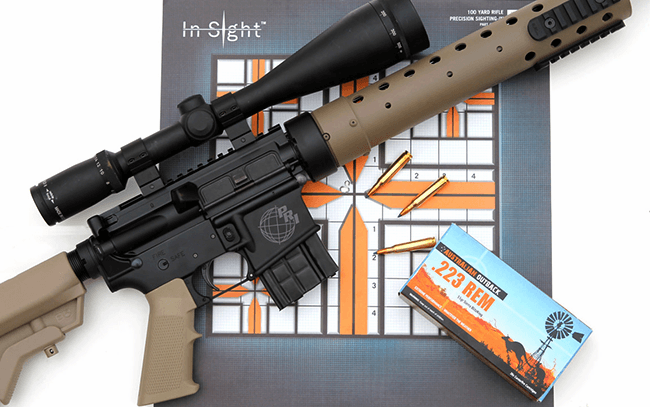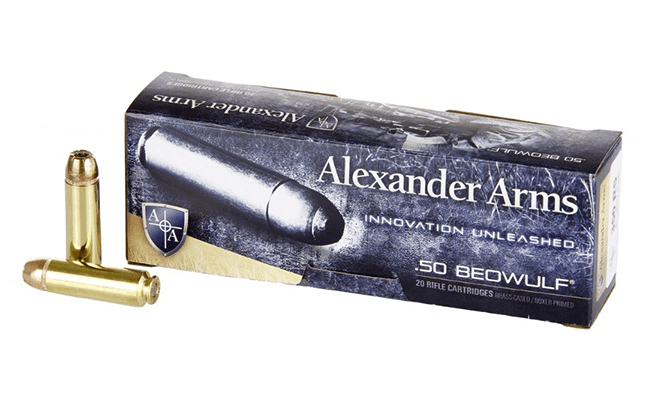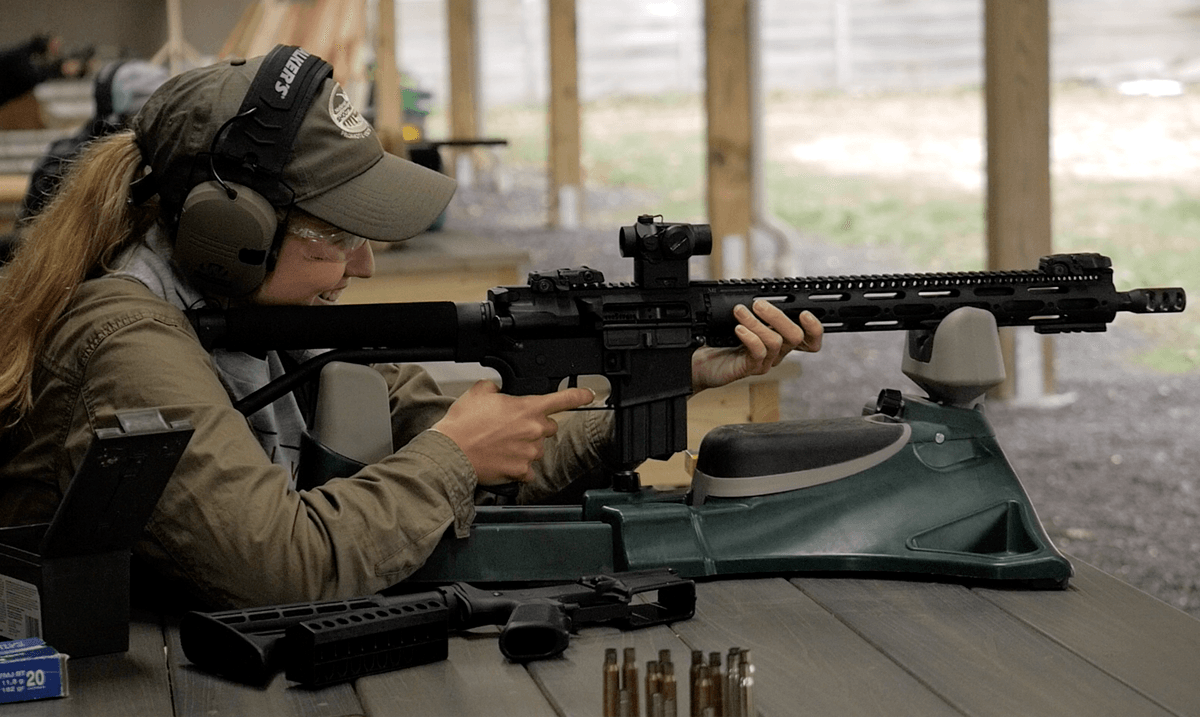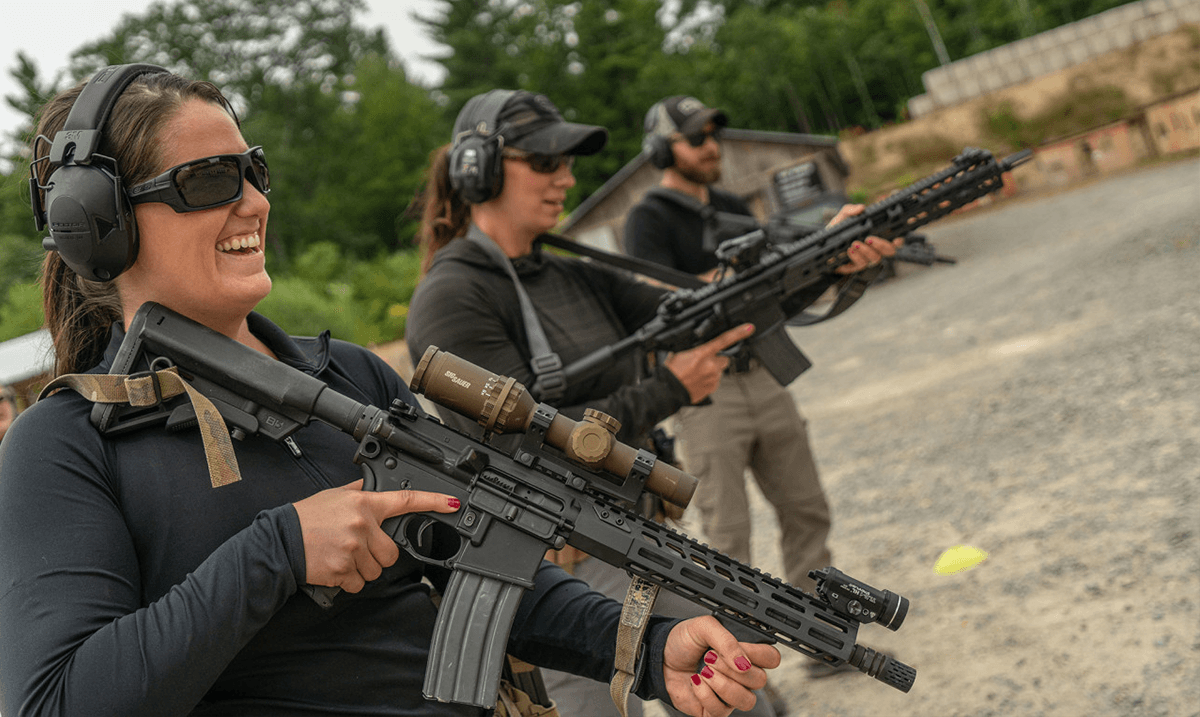
It’s not just the 7.62mm and 5.56mm anymore!
By Scott E. Mayer
Talking about modern sporting rifles (MSRs) was a lot easier before they got so popular because you could speak in generalities and what you said was generally understood and correct. Consider, for example, something as simple as the differences between an AR-10 and an AR-15 which aren’t all that different at all as they look alike, function alike and share the same lineage. A few decades ago, it was easy to understand that an AR-10 was simply the larger 7.62mm-chambered gun and best suited for long-range shooting or big-game hunting, while the AR-15 was the smaller 5.56mm-chambered gun, lighter, more maneuverable and better suited to close-range target work.
All of that generality is mostly out the window now. Both platforms are now so easily adapted to specific purposes ranging from long-range target shooting and personal defense to big-game, varmint and predator hunting and everything in between—and with so many calibers now available for them, that the MSR can be said to be the most versatile rifle platform on the planet. Let’s take a look, then, at where the two “sizes” are today.
The AR-10
Unless you’re a high-power rifle competitor, you may not know that the military has used the 5.56mm-chambered M16 for long-range target shooting for some time. I recall seeing the AMU (Army Marksmanship Unit) shooting them at the 1,000-yard range at Camp Perry in the 1990s—so much for being relegated to only close-quarters work. For others, though, the modern go-to platform for 1,000-yard shooting was the AR-10 because it was chambered in 7.62mm, a round that had a proven long-range track record at distance when fired from guns such as the M14 and M1A. Unless you were competing in a classification that restricted the type of gun, if you wanted to poke a hole in paper way out there, you needed an accurate cartridge that could reach way out there and such cartridges needed the AR-10’s bigger platform. The AR-10, then, was the “big-bore” Modern Sporting Rifle.
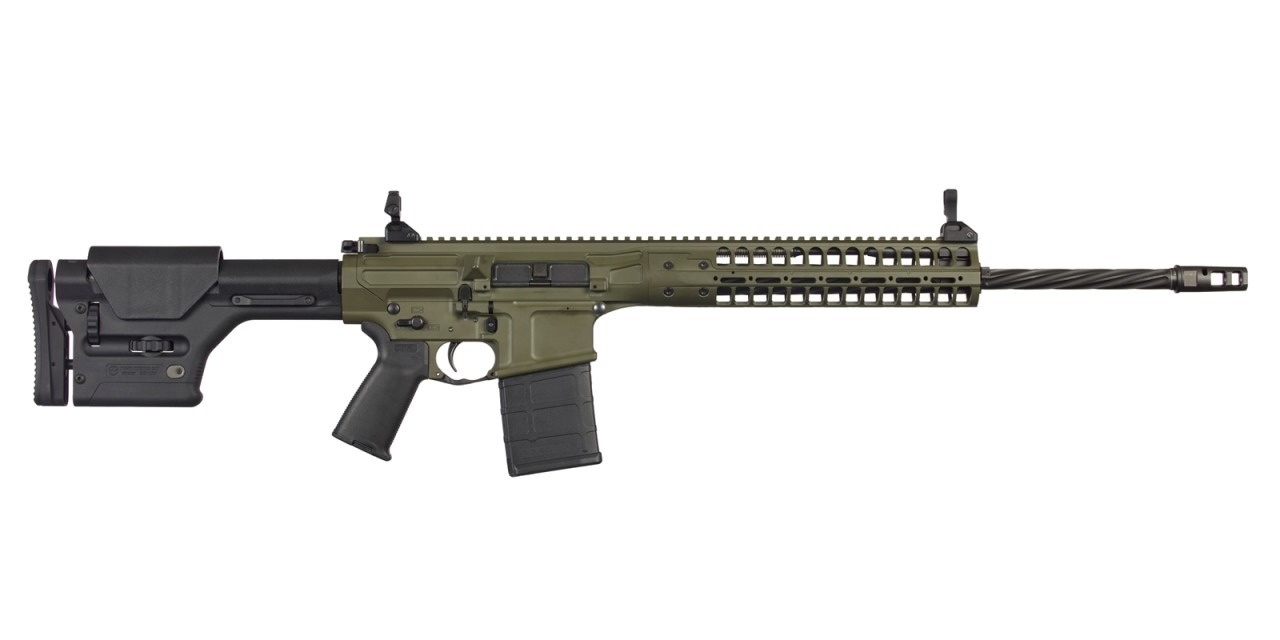
LWRC’s REPR MKII is typical of 7.62mm-chambered AR-10s. It weighs 9 pounds. The company’s comparable AR-15 in 5.56mm weighs 7.3 pounds with the same-length barrel.
The 7.62mm is about the top end in recoil that most shooters can shoulder, so it wasn’t long after MSRs became mainstream that I started seeing AR-10s appearing chambered in smaller-caliber cartridges. One of the first was Armalite with an AR-10 chambered in .243 Win. that was marketed to hunters. Today, you can also find AR-10s chambered in .260 Remington, 7mm-08 and, most recently, the 6.5mm Creedmoor. There has also been growth in the bigger caliber offerings, with factory guns chambered in .338 Federal and custom makers delivering AR-10 conversions to such cartridges up to and including .450 Marlin.
The AR-15
When it comes to the AR-15, it was pejoratively nicknamed the “mouse-gun” because of its 5.56mm chambering. That was until a Brit named Bill Alexander got in touch with his inner Anglo-Saxon and came out with AR-15s chambered in his 6.5 Grendel and .50 Beowulf cartridges. At about the same time, Tromix and Teppo Jutsu came out with the .458 SOCOM. None of those cartridges completely leveled the playing field between the AR-10 and the AR-15 because, while they offered greater bullet diameter and power, they didn’t have the range of typical AR-10 cartridges. What they did do was present the opportunity for shooters to begin legitimately using the lighter AR-15 platform for hunting big game. They also offered effective close-range shooting with suppressed and subsonic loads, but more than anything they got shooters thinking outside the box.
Which One Now?
Today, it’s still eminently more practical to choose an AR-10-size MSR for long-range shooting, though Alexander’s Grendel cartridge on the AR-15 platform has made inroads into some-long range shooting circles. The new .224 Valkyrie cartridge in the AR-15 is similarly turning heads. With either, you can choose the smaller, lighter AR-15 platform for long-range shooting and be competitive.
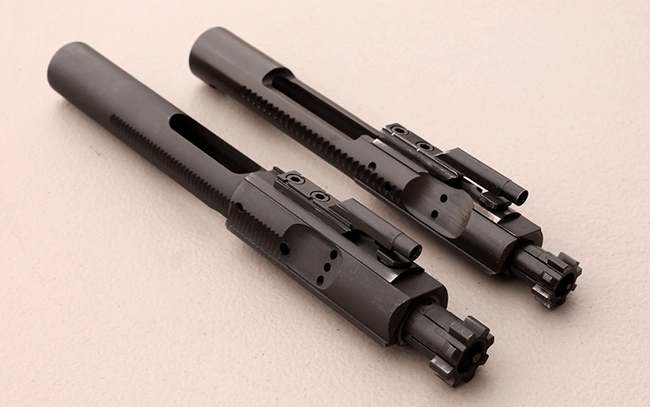
An AR-15 bolt (top) compared to an AR-10 bolt (bottom) show the proportional difference in size between the two platforms.
Likewise, you don’t necessarily have to choose an AR-10 for hunting medium-size game such as hogs or deer anymore. In addition to the Grendel, Beowulf and SOCOM cartridges, ammunition development, specifically regarding bullet construction, make the AR-15 in 5.56mm a viable cartridge for hunting game such as deer. I wouldn’t use the 5.56mm on big deer such as you find in Saskatchewan, but for smallish-bodied whitetail with bullets specifically made for medium-game hunting it will do the job (where legal, of course). The AR-15 also enjoys a host of other cartridges suitable for medium-size big game including .300 Blackout and .450 Bushmaster. They’re by no mean long-distance rounds, but at woods range, I think it’s hard to beat a big, slow, heavy bullet.
The Blurred Lines
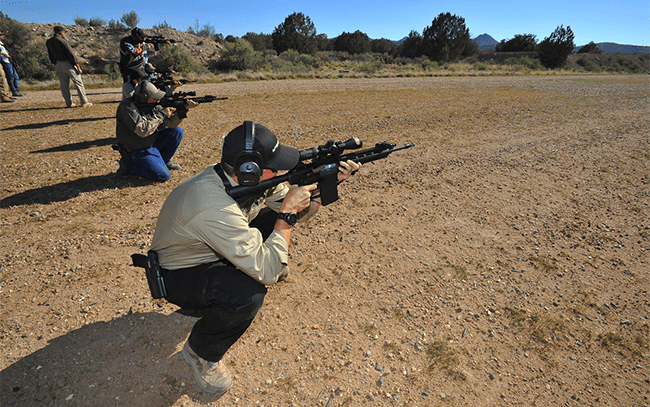
Though the lines are blurring, the lighter AR-15 remains the stronger platform for close range while the AR-10 is better suited for long-range.
The respective capabilities of the AR-10 and AR-15 become further blurred when you consider how some manufacturers’ innovations are not only outside the box, but uses the box as a target stand. Olympic Arms has a WSSM series of modified AR-15 rifles chambered for the 243 WSSM or .25 WSSM that will give an AR-10 chambered in .243 Win. a run for its money. Olympic modified AR-15s to chamber its proprietary .300 OSSM cartridge that sends a 150-grain bullet at 3,046 fps, bettering the 7.62mm with the same weight bullet by about 250 fps! The same model is also available in 22-250 Rem.
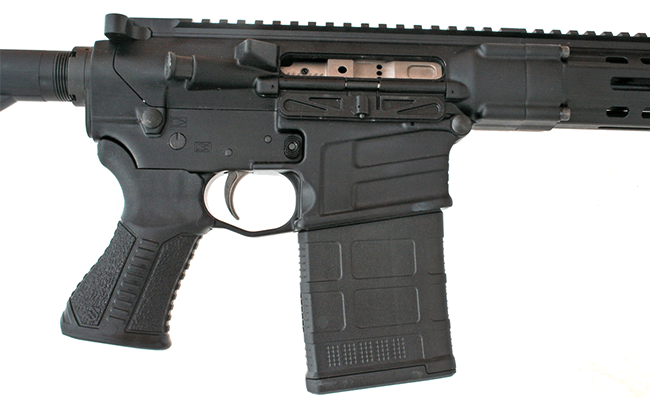
Savage split the baby in two when it comes to the size difference between the AR-10 and AR-15 by creating an AR-10 platform that has a 5/8-inch shorter receiver than standard iterations.
Rather than try to squeeze something more powerful in the smaller platform, Savage split the difference in the two platforms by developing its MSR10. The company’s engineers considered the typical AR-10 platform as too big and bulky for hunting, so Savage shortened the receiver about 5/8-inch by altering the bolt carrier group. “It’s an AR-10 that handles like an AR-15,” says one Savage employee.
Wikipedia lists something like 47 chamberings for the AR-15, 31 for AR-10. If you include MSR-pattern rifles that depart from the standard AR-10 and AR-15 dimensions, you can add in many additional long-action and magnum cartridges ranging from 25-06 Rem. and 270 Win. to .408 Chey Tac and .458 Win. Mag.
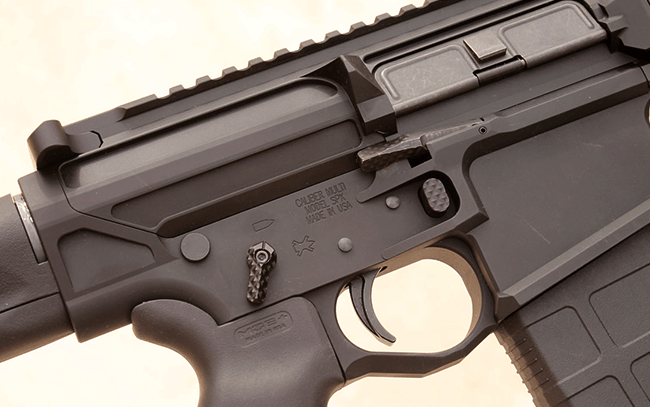
Regardless the platform, most ARs are marked “multi” when it comes to caliber. It’s a testament to their versatility.
The distinction between the two MSR platforms may eventually fade into history as ammunition technology and manufacturing improvements continue to gradually make one more like the other. If you’re game for something different than what everyone else has (and that’s in no small part what MSRs are about), there’s almost no limit to what combination of cartridge/platform you can find in either platform.
You may also be interested in:
https://www.letsgoshooting.org/2019/10/08/the-marvelous-msr-theyre-functional-and-customizable/
https://www.letsgoshooting.org/2019/10/18/what-to-consider-when-mounting-lights-to-an-msr/


